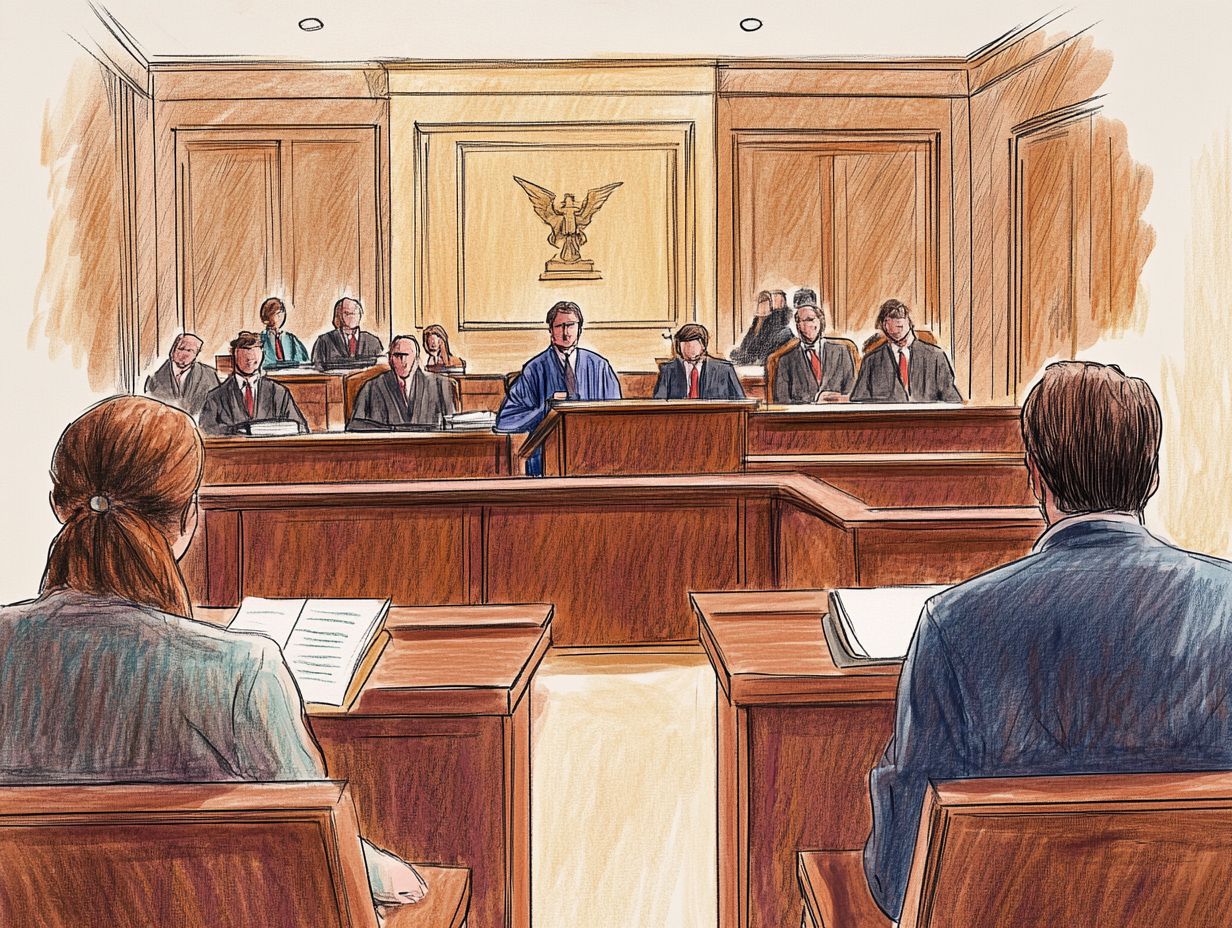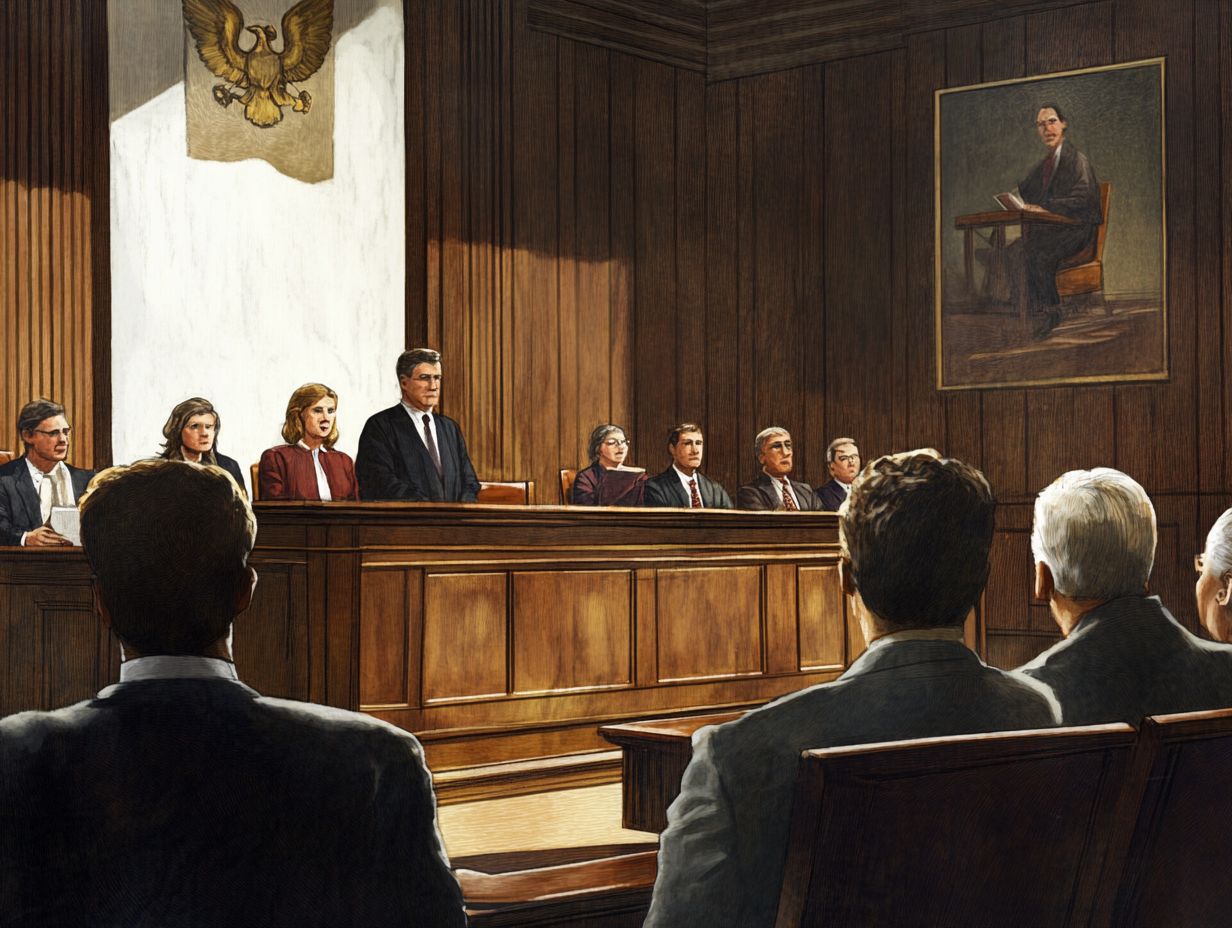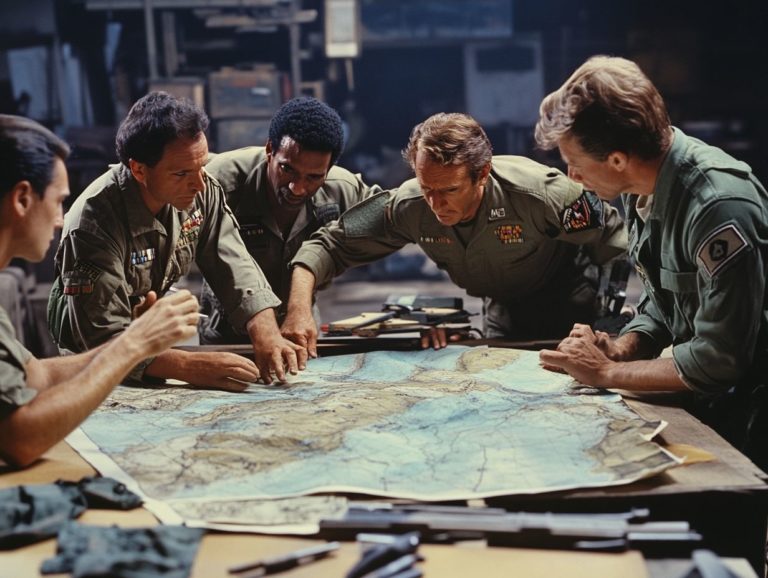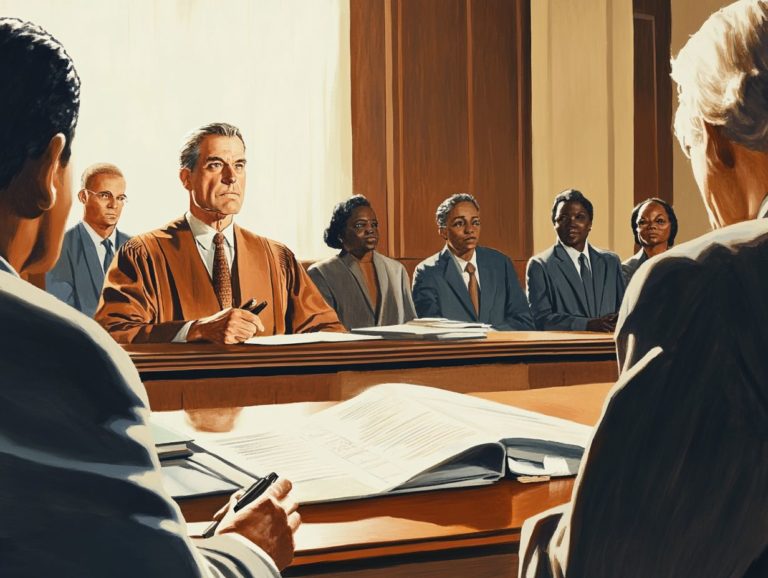Understanding the Role of Sympathy in Defense
In the intricate world of military strategy, it is surprising how pivotal sympathy can be.
This article delves into the complex idea of sympathy within defense. We will trace its historical roots and examine its profound impact on military strategies over time.
From its influence on modern warfare to compelling real-world case studies, you ll uncover how empathy actively shapes decisions on the battlefield.
We will also explore the critiques and ethical dilemmas surrounding the role of sympathy in defense, offering valuable insights into its potential future.
Navigate with us through this fascinating intersection of emotion and strategy, where the heart meets tactical acumen.
Contents
- Key Insights on Sympathy in Defense:
- The Concept of Sympathy in Defense
- Historical Perspectives on Sympathy in Defense
- Sympathy in Modern Warfare
- Examples of Sympathy in Action
- Critiques and Controversies Surrounding Sympathy in Defense
- The Future of Sympathy in Defense
- Frequently Asked Questions
- What is sympathy and how does it relate to defense?
- How Does Sympathy Affect Defense Strategies?
- Is sympathy always beneficial in a defense case?
- Can sympathy be used for both the accused and the victim in a defense case?
- How can sympathy be balanced with other defense strategies?
- Are there any ethical concerns with using sympathy in defense?
Key Insights on Sympathy in Defense:

1. Sympathy is essential for defense, building deep connections with adversaries that change the game.
2. The significance of sympathy in military strategies has been evident throughout history, shaping how wars are fought and won.
3. In modern warfare, empathy plays a vital role in understanding and preventing conflicts as well as building stronger alliances.
The Concept of Sympathy in Defense
The concept of sympathy in defense goes beyond simple emotional reactions; it captures the essence of the human condition and the emotional intelligence that shapes military strategies and operations.
It involves a profound understanding of feelings, not just within the military realm but also in broader contexts like workplace stability and leadership development.
By embracing strategic empathy and compassionate leadership, military environments can adeptly navigate emotional perspectives. This nurtures prosocial behaviors that bolster cohesion among troops.
This approach boosts effectiveness dramatically, creating a resilient force ready for any challenge.
Defining Sympathy and its Importance
Sympathy is a complex emotional response that is vital for grasping the human condition. It enhances emotional intelligence and fosters compassionate leadership across various environments, including military settings.
It involves recognizing and acknowledging the feelings of others, often leading to a genuine desire to alleviate their suffering. Unlike empathy, which demands a deep understanding of another’s emotional experience, sympathy maintains a certain emotional distance while still providing support.
In both military and civilian contexts, expressing sympathy can significantly influence team cohesion and morale. For instance, when a commanding officer shows sympathy toward a soldier navigating loss, it cultivates trust, openness, and resilience within the unit.
In civilian workplaces, sympathetic leadership can inspire employees to engage in prosocial behaviors, ultimately creating a more supportive and productive atmosphere.
Historical Perspectives on Sympathy in Defense
Historically, the role of sympathy in defense has undergone significant evolution. This evolution intricately shapes military strategies through a profound understanding of moral development and emotional awareness.
It mirrors the changing nature of warfare and the broader human experience throughout various eras.
How Sympathy has Shaped Military Strategies
Sympathy has profoundly influenced military strategies, shaping decision-making processes and deepening the understanding of the human condition among both troops and leaders.
This emotional connection enhances camaraderie and trust, allowing teams to perform more effectively even in high-pressure situations.
Take World War II, for instance. Leaders who demonstrated empathy toward their soldiers’ fears cultivated a sense of loyalty and morale that proved crucial on the most challenging fronts.
In today s military landscape, there s a growing recognition of the importance of emotional intelligence. Armed forces are now leveraging psychological assessments to evaluate troop readiness and mental well-being.
This not only aids in strategic planning but also helps address issues like PTSD, ultimately leading to more humane and effective operational tactics.
Sympathy in Modern Warfare

In modern warfare, sympathy and empathy are crucial in boosting the effectiveness of military operations.
Leaders are increasingly aware of how essential emotional intelligence and strategic empathy are for successfully navigating the complexities of today s battlefields.
The Role of Empathy in Modern Defense
Empathy stands as an important element in modern defense, elevating emotional awareness among leaders and troops alike. This ultimately enhances military operations and strategic outcomes.
By understanding better their own emotions and those of others, military personnel can adeptly navigate complex situations that require not only tactical skill but also emotional intelligence.
This emotional acumen is key to fostering strong interpersonal relationships, which, in turn, bolsters morale and teamwork on the battlefield.
Consider recent peacekeeping missions: military units that embraced empathic communication reported significantly improved collaboration with local communities. This improved interactions and resolved conflicts more effectively.
The ability to connect on a human level not only drives operational success but also lays the groundwork for long-term stability in regions beset by turmoil.
Examples of Sympathy in Action
Examples of sympathy in action vividly illustrate its transformative impact on military operations.
By examining case studies, you can see how emotional intelligence and a genuine understanding of feelings foster shared experiences and unity among the troops.
Case Studies of Sympathy in Military Operations
Case studies of sympathy in military operations reveal compelling instances where emotional intelligence and compassion can significantly influence decision-making and troop cohesion.
In these scenarios, leaders navigate conflicts not just through strategic prowess but by cultivating an environment where empathy and understanding take center stage.
For instance, during operations in Afghanistan, units that embraced emotional intelligence in their interactions with local populations faced fewer hostilities and fostered improved cooperation.
These examples highlight how acknowledging the human element can lead to more effective strategies, urging military planners to rethink traditional approaches to warfare.
As global conflicts continue to evolve, integrating emotional intelligence into military doctrine may prove essential in establishing lasting peace and stability.
Critiques and Controversies Surrounding Sympathy in Defense
Critiques and controversies surrounding sympathy in defense often focus on moral dilemmas and ethical challenges.
This raises important questions about whether emotional intelligence might occasionally impede critical military decisions.
Challenges and Ethical Considerations

Challenges and ethical considerations surrounding sympathy in defense prompt significant questions about the equilibrium between emotional intelligence and military effectiveness.
In military contexts, you may find yourself walking a fine line between showing empathy for your troops and the pressing need to uphold discipline and operational readiness.
The desire to express compassion can sometimes clash with strategic objectives, leading to complex moral dilemmas regarding sacrifice and loyalty.
Integrating sympathy into decision-making processes can create tension, particularly when weighing the best course of action in life-or-death situations.
Military leaders must navigate how to foster emotional connections without undermining their authority or tactical efficiency. It becomes essential to establish frameworks that reconcile humanistic values with mission imperatives.
The Future of Sympathy in Defense
The future of sympathy in defense is full of exciting possibilities! Emerging trends in emotional intelligence and leadership development underscore the crucial need for heightened empathy within military environments.
Embracing this shift can foster stronger connections and more effective teamwork, ultimately enhancing overall mission success and well-being!
Potential Developments and Implications
Potential developments in the role of sympathy within military defense suggest that you might see a shift toward greater emotional awareness and an understanding of feelings. This shift ultimately enhances both better results and team spirit.
This change could lead to innovative training programs that prioritize empathy. By doing so, leaders like you can connect more meaningfully with your teams.
For example, incorporating emotional intelligence workshops might improve communication and collaboration among soldiers. This fosters a more unified force. Research indicates that units with high emotional intelligence tend to perform better under pressure, highlighting the direct link between compassion and operational effectiveness.
Adopting a leadership approach that values emotional insight may streamline your decision-making processes. This paves the way for more adaptable strategies in the field.
As the military transforms quickly, integrating sympathy into everyday practices can redefine success and help shape a more resilient force.
Frequently Asked Questions
-
What is sympathy and how does it relate to defense?
Sympathy is the feeling of understanding and compassion towards someone else’s emotions or circumstances. In defense, it plays a role in understanding the motivations and actions of both the accused and the victim.
-
How Does Sympathy Affect Defense Strategies?
Sympathy can greatly impact the defense strategy as it can elicit emotions and empathy from the jury or judge. It can also be used to humanize the accused and create a more favorable impression.
-
Is sympathy always beneficial in a defense case?
No, sympathy can sometimes backfire and create a negative perception if it is perceived as manipulative or insincere. It is important for defense attorneys to carefully consider when and how to use sympathy in a case.
-
Can sympathy be used for both the accused and the victim in a defense case?
Yes, sympathy can be used to evoke compassion for both the accused and the victim. It can explain the motives of the accused or humanize the victim’s suffering.
-
How can sympathy be balanced with other defense strategies?
Sympathy should not be the sole foundation of a defense strategy. It should be balanced with other strategies such as presenting evidence, questioning witnesses, and witness testimonies to create a strong defense case.
-
Are there any ethical concerns with using sympathy in defense?
While it is a legitimate defense strategy, there are ethical concerns with manipulating emotions and using sympathy to sway the jury’s decision. It is important for defense attorneys to use sympathy ethically and within the boundaries of the law.
Embrace these changes now to enhance your leadership and create a more empathetic military environment!







